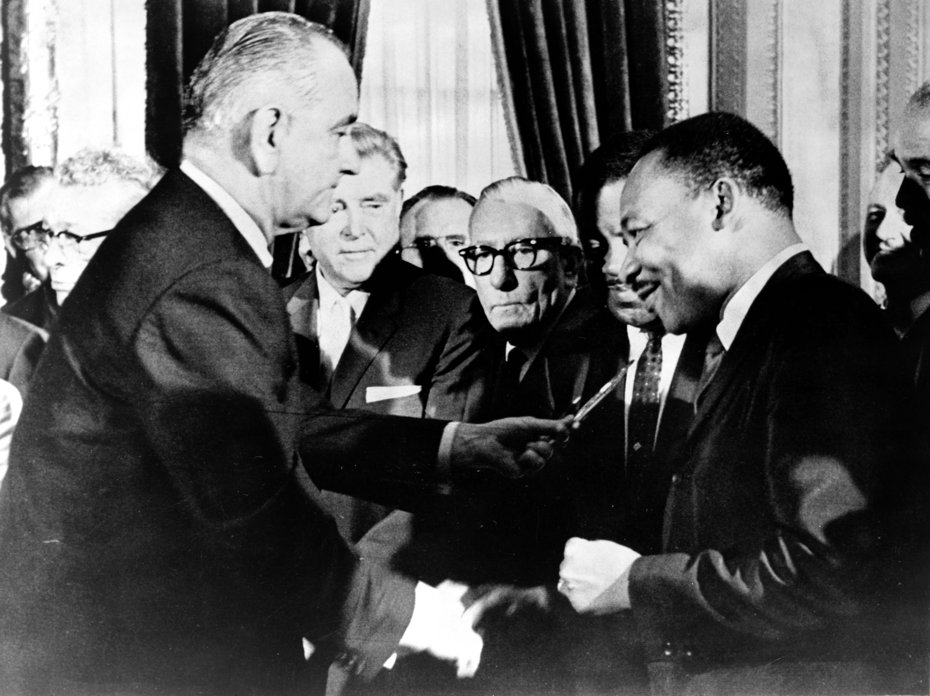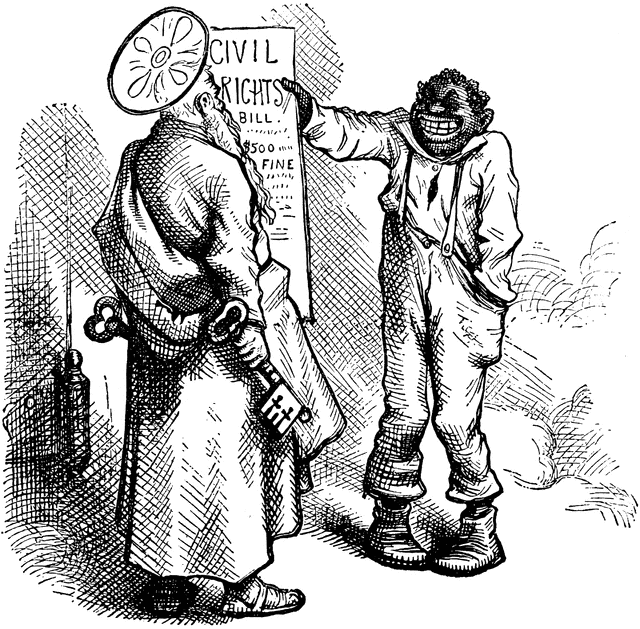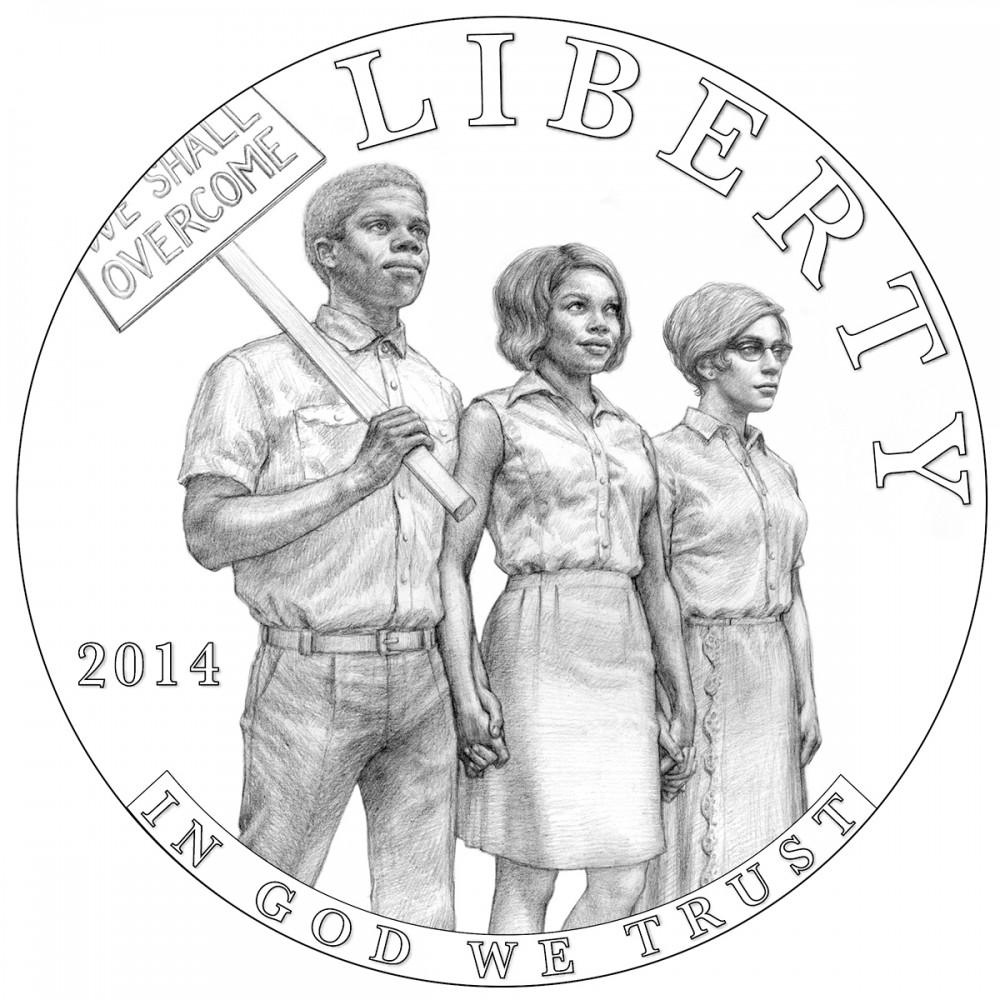Civil Rights Act Of 1964 Drawing
Civil Rights Act Of 1964 Drawing - Web this blog post is the fourth in a series that takes a close look at the civil rights act of 1964, using historical documents from the library of congress to explore aspects of life that the act was designed to improve. Web the civil rights act of 1964, comprised of eleven titles and numerous sections, has been called the “most comprehensive undertaking” to prevent and address discrimination in a wide range of contexts. 1971), as amended by §131 of the civil rights act of 1957, and as further amended by §601 of the civil rights act of 1960.¿ Web as the 50th anniversary of the passage of the civil rights act of 1964 draws near, this blog will take a closer look at several important sections of the act through primary sources, using historical artifacts to explore the aspects of life under legal segregation that the act was meant to improve. Web the civil rights act of 1964. Web senate civil rights passage of bill, final vote, memory sketch, june 19, 1964. Øamends §2004 of the revised statutes (42 u.s.c. Web drawing on religious iconography and symbols from paintings of the crucifixion of christ and the pieta, driskell evokes themes of innocent sacrifice in his emotional and jarring work. Web an examination of the legacy of the civil rights act of 1964 indicates that it has taken several decades for the act’s effects to be fully felt. Crayon, ink, blue pencil, and white out over pencil ; Web an examination of the legacy of the civil rights act of 1964 indicates that it has taken several decades for the act’s effects to be fully felt. The 1980s saw that new generations of americans believed that the civil rights act had indeed worked. The struggle to secure voting rights, equal protection under the law, equal employment opportunities, integration. Web the civil rights act of 1964 addresses discrimination in diverse contexts, ranging from discriminatory voter registration practices to segregation in business establishments and public schools. The fireworks represent the civil rights bill. Crayon, ink, blue pencil, and white out over pencil ; The struggle to secure voting rights, equal protection under the law, equal employment opportunities, integration in education,. Web an examination of the legacy of the civil rights act of 1964 indicates that it has taken several decades for the act’s effects to be fully felt. Web as the 50th anniversary of the passage of the civil rights act of 1964 draws near, this blog will take a closer look at several important sections of the act through. Sheet 38 x 31.2 cm. Prints and photographs division, library of congress (192.01.00) © estate of howard brodie; Øamends §2004 of the revised statutes (42 u.s.c. This post focuses on title vii, which made it unlawful for employers and employment agencies to fail or refuse to hire or refer. Web the civil rights act of 1964 and voting rights act. The struggle to secure voting rights, equal protection under the law, equal employment opportunities, integration in education, and fair housing. Race became a major factor in drawing congressional district lines as a result of efforts of congress to supervise the manner in which its laws are implemented by the executive branch. Web the civil rights act of 1964, which ended. Web civil rights act, comprehensive u.s. In an 11 june 1963 speech broadcast live on national television and radio, president john f. In a nationally televised address on june 6. 1971), as amended by §131 of the civil rights act of 1957, and as further amended by §601 of the civil rights act of 1960.¿ Crayon, ink, blue pencil, and. Web the civil rights act of 1964, comprised of eleven titles and numerous sections, has been called the “most comprehensive undertaking” to prevent and address discrimination in a wide range of contexts. Includes bibliographical references (page 30) and index. Web senate civil rights passage of bill, final vote, memory sketch, june 19, 1964. Web an examination of the legacy of. Race became a major factor in drawing congressional district lines as a result of efforts of congress to supervise the manner in which its laws are implemented by the executive branch. Prints and photographs division, library of congress (192.01.00) © estate of howard brodie; Senate before final civil rights vote, final day. It was the most sweeping civil rights legislation. Web the law’s eleven sections prohibited discrimination in the workplace, public accommodations, public facilities, and agencies receiving federal funds, and strengthened prohibitions on school segregation and discrimination in voter registration. Web drawing on religious iconography and symbols from paintings of the crucifixion of christ and the pieta, driskell evokes themes of innocent sacrifice in his emotional and jarring work. Web. Web the civil rights act of 1964. Between the two, these acts outlawed discrimination based on race, color, religion, sex, or national origin. 241, enacted july 2, 1964) is a landmark civil rights and labor law in the united states that outlaws discrimination based on race, color, religion, sex, and national origin. Annotated document offers context and. 1971), as amended. Web npr launches interactive guide to the civil rights act of 1964. Web a segregationist's view of the civil rights movement, 1964. Web civil rights act, comprehensive u.s. Npr's code switch goes 'behind the civil rights act' with interactive guide launching today. Web drawing on religious iconography and symbols from paintings of the crucifixion of christ and the pieta, driskell evokes themes of innocent sacrifice in his emotional and jarring work. Senate before final civil rights vote, final day. This post focuses on title vii, which made it unlawful for employers and employment agencies to fail or refuse to hire or refer. Annotated document offers context and. By the eberly family special collections library. The year 2014 marked the 50th anniversary of the civil rights act of 1964, a milestone in the struggle to extend civil, political, and legal rights and protections to african americans, including former slaves and their descendants, and to end segregation in public and private facilities. Web the civil rights act of 1964, which ended segregation in public places and banned employment discrimination on the basis of race, color, religion, sex or national origin, is considered one of the. Web as the 50th anniversary of the passage of the civil rights act of 1964 draws near, this blog will take a closer look at several important sections of the act through primary sources, using historical artifacts to explore the aspects of life under legal segregation that the act was meant to improve. Web the law’s eleven sections prohibited discrimination in the workplace, public accommodations, public facilities, and agencies receiving federal funds, and strengthened prohibitions on school segregation and discrimination in voter registration. In a nationally televised address on june 6. Race became a major factor in drawing congressional district lines as a result of efforts of congress to supervise the manner in which its laws are implemented by the executive branch. 1971), as amended by §131 of the civil rights act of 1957, and as further amended by §601 of the civil rights act of 1960.¿
2014 Civil Rights Act of 1964 Silver Dollar Designs Reviewed by CCAC

A cartoon of the passage of the Civil Rights Act of 1964 A cartoon

Civil rights act of 1964 clipart 20 free Cliparts Download images on

The Civil Rights Act of 1964 by Jason Skog

Civil rights act of 1964 clipart 20 free Cliparts Download images on

Civil rights act of 1964 clipart 20 free Cliparts Download images on

civil rights act of 1964 Google Search By Act of Congress
:max_bytes(150000):strip_icc()/johnson-signs-civil-rights-act-515056295-5ab96e17a18d9e00379345a1.jpg)
Mga Pangunahing Milestone sa Pagtatapos ng Segregasyon sa United States

Institutional Archives Illustration West 54

"Civil Rights Act 1964 Equality Movement Black Lives Matter" Poster
Web The Civil Rights Act Of 1964 And Voting Rights Act Of 1965 The Two Most Significant Pieces Of Civil Rights Legislation Since Reconstruction Were Passed Within Two Years Of Each Other.
President Johnson Signed The Civil Rights Act Of 1964 Into Law On July 2, 1964.
Web This Act, Signed Into Law By President Lyndon Johnson On July 2, 1964, Prohibited Discrimination In Public Places, Provided For The Integration Of Schools And Other Public Facilities, And Made Employment Discrimination Illegal.
Web The Civil Rights Act Of 1964, Comprised Of Eleven Titles And Numerous Sections, Has Been Called The “Most Comprehensive Undertaking” To Prevent And Address Discrimination In A Wide Range Of Contexts.
Related Post: